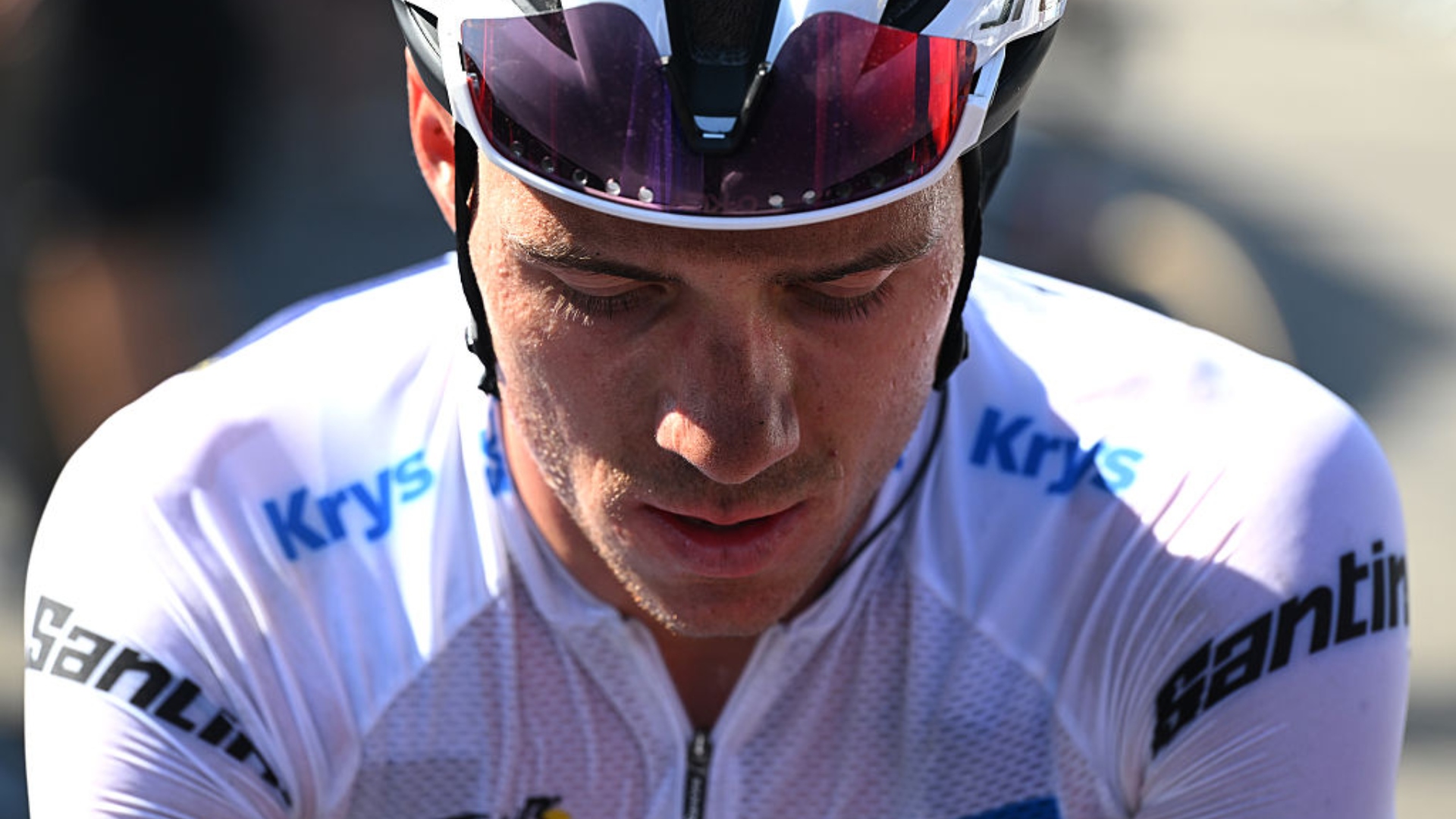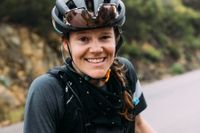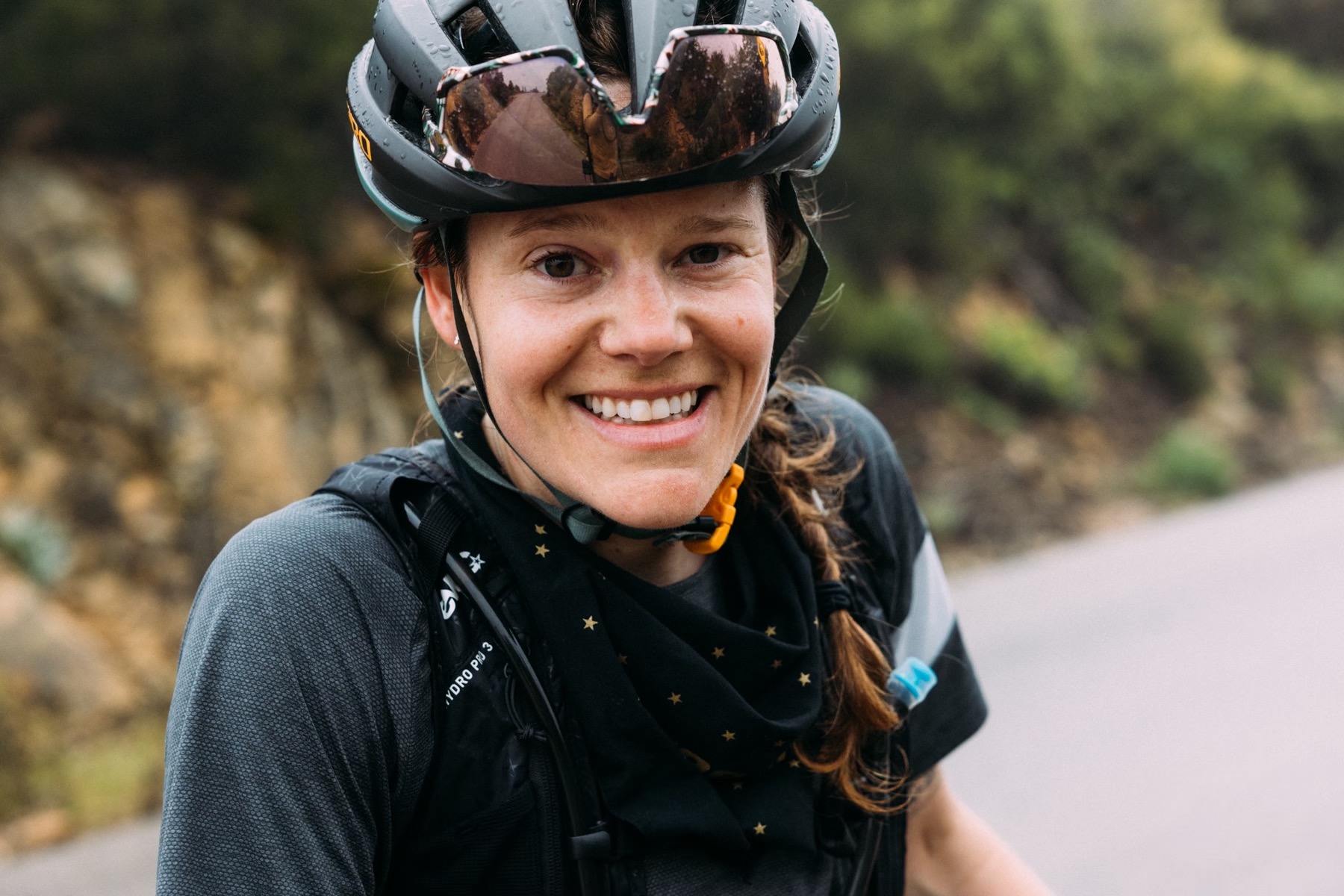Evenepoel opens up: '[Quitting the Tour] was one of the rawest, most vulnerable moments of my career. I broke and strangely enough, I’m proud of it'
'It’s okay to be human. Sometimes stepping back is the strongest thing you can do,' says the Belgian star


You could see it on his face.
From the first pedal strokes up the Tourmalet, the tension was there. In his eyes, in his posture. The white jersey didn’t shine quite so bright under the grey skies on stage 14 of the 2025 Tour de France. Remco Evenepoel’s minutes in this Tour were dwindling, even if he didn’t know it yet. Or maybe he did.
The early slopes were a sufferfest for the Belgian superstar. He was pedaling squares. A rider usually so composed, so fluid, was at the end of his reserves, searching for rhythm, for oxygen, for anything that may carry him forward.
At first, his teammates rallied around him, trying to nurse him through the agony, but to no avail. The mountain was taking more than just seconds from him. It was taking his Tour. His season goal.
Then came and went the first Soudal Quick-Step team car. For a moment, there was hope. Maybe there was still a fight left in him after all. But no. He had nothing left to give. His head sagged. His body slumped forward. He was broken in body and spirit. The white jersey, the GC dreams, all of it dissolving.
And then came the second car. There was no drama, no spectacle; just a quiet surrender. But before he stepped off, before the car door opened and the dream closed, Evenepoel gave one last gesture: a bottle handed to a kid along the roadside. A thank you to his fans everywhere.
Four days later, the 25-year-old has broken his silence. In a reflective and heartfelt social media post, he calls that day “the rawest and most vulnerable moment of my career,” and reveals the deep physical struggles that brought him to that point.
It all started in December, when he collided with the open door of a van during a training ride and sustained significant injuries. While his competitors spent their winter months building strong foundations for the season ahead, Evenepoel was forced to focus on rehabilitation and recovery.
The latest race content, interviews, features, reviews and expert buying guides, direct to your inbox!
With that delay, everything suddenly became a race against time, something the Olympic time trial champion usually excels at.
“I always felt like I was playing catch-up,” Evenepoel says. “I never quite felt like myself. But I kept believing, I didn’t want to give up on the dream.”
Looking back now, he realises that his body was never fully given the chance to recover. Beneath the surface, it was still mending.
“We thought the time off during rehab had given me enough rest. But in reality, my body never truly had a break… I was running low before the Tour even started,” he admits.
Then came another blow. Just days before the Grand Départ, he crashed again. This time at the Belgian National Championships, where he sustained a fractured rib.
“Not the worst but definitely not ideal,” he says. But all these months of struggles meant that he “lined up for the hardest race in the world with a broken rib and tired body.”
Still, he remained determined, unwilling to surrender the goal that had been his carrot, his light at the end of the tunnel, all those long months.
The Tour started off promising. A stage win. The white jersey. GC contention. But once the race hit the high mountains, Evenepoel “cracked’.
He lost time on the climb to Hautacam. In the mountain time trial to Peyragudes, Evenepoel, the reigning time trial world champion, suffered the humiliation of being caught by his two-minute man, Jonas Vingegaard (Visma | Lease a bike).
“But still, I didn’t want to give up. I fought as hard as I possibly could,’ Evenepoel writes. “For you, my fans, I wanted to give every last bit of what I had left in me.”
But there was nothing left to give. His body was worn out. Illness took hold and he was done.
“What was meant to be the highlight of my season turned into disappointment,” he says. But instead of frustration, what comes through is maturity and the perspective of a rider who has grown through adversity.
“That day became one of the rawest and most vulnerable moments of my career. I broke and strangely enough, I’m proud of it,” says Evenepoel.
“It takes strength to show that things don’t always go your way. That even when you want something deeply, sometimes your body has other plans. That moment, as hard as it was, showed that I’m human with highs and lows. Leaving the Tour was the hardest decision I’ve made in a long time. But it was the right one.”
Inspiring even when he’s down, Evenepoel leaves young riders with this message:
“It’s okay to stop. It’s okay to feel tired. It’s okay to be human. Sometimes stepping back is the strongest thing you can do.”

Thank you for reading 20 articles this month* Join now for unlimited access
Enjoy your first month for just £1 / $1 / €1
*Read 5 free articles per month without a subscription

Join now for unlimited access
Try first month for just £1 / $1 / €1

Cycling Weekly's North American Editor, Anne-Marije Rook is old school. She holds a degree in journalism and started out as a newspaper reporter — in print! She can even be seen bringing a pen and notepad to the press conference.
Originally from the Netherlands, she grew up a bike commuter and didn't find bike racing until her early twenties when living in Seattle, Washington. Strengthened by the many miles spent darting around Seattle's hilly streets on a steel single speed, Rook's progression in the sport was a quick one. As she competed at the elite level, her journalism career followed, and soon, she became a full-time cycling journalist. She's now been a journalist for two decades, including 12 years in cycling.
You must confirm your public display name before commenting
Please logout and then login again, you will then be prompted to enter your display name.